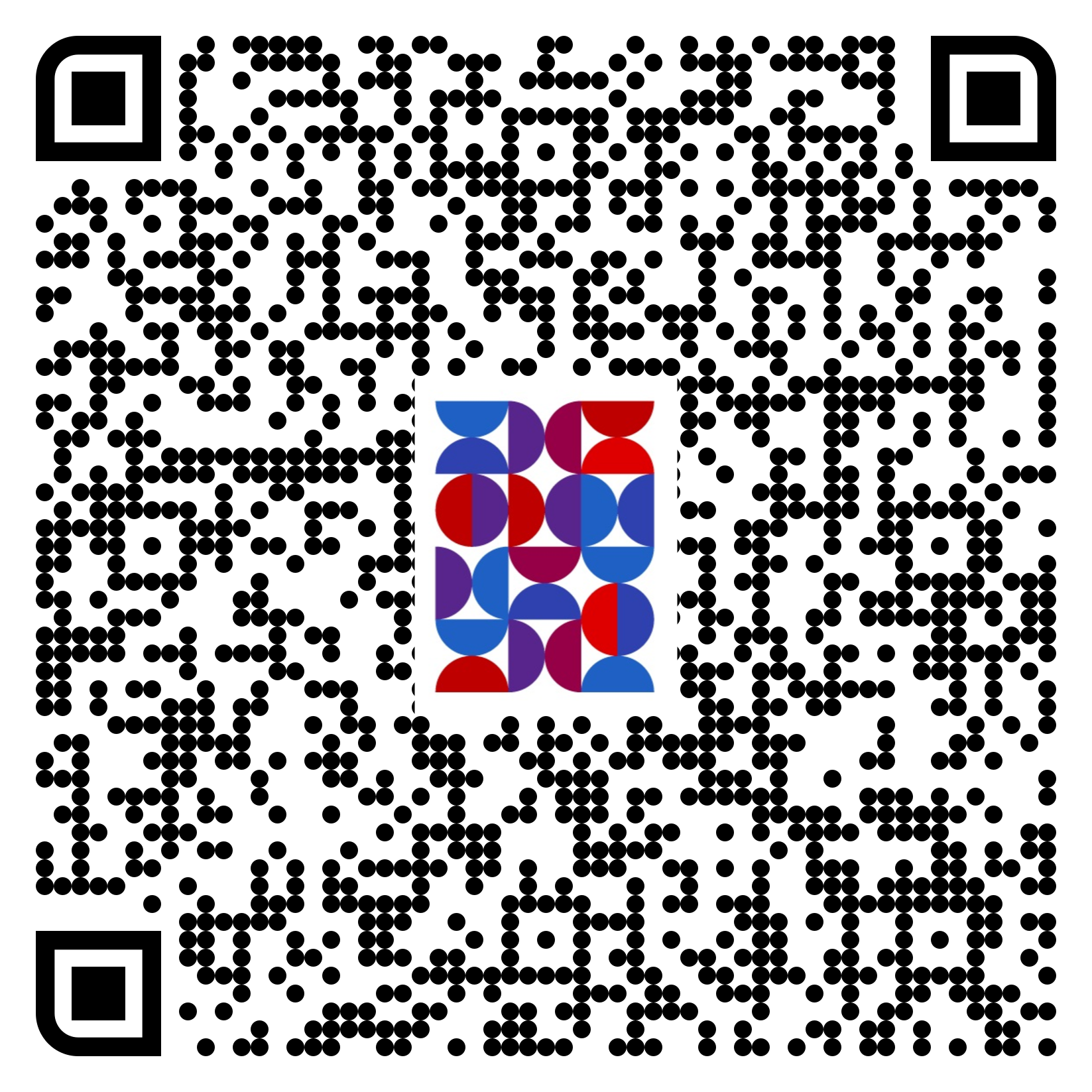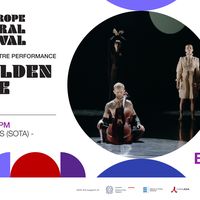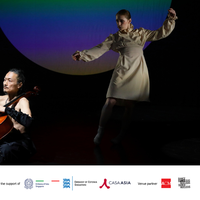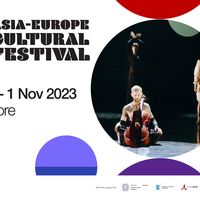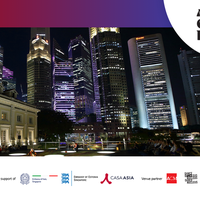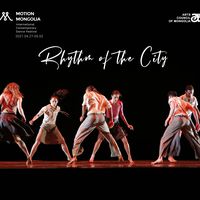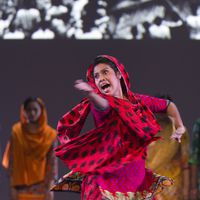Asia-Europe Cultural Festival: 2023 | Interview with Teet Kask
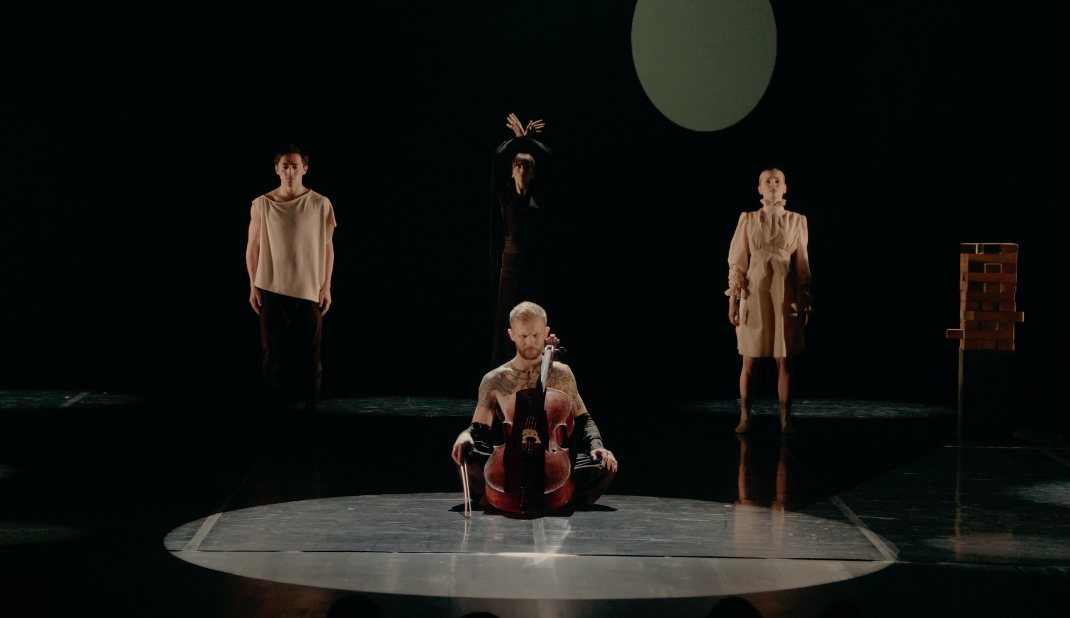
The Asia-Europe Cultural Festival is a public arts festival that celebrates the artistic diversity of Asia and Europe and promotes the dialogue and exchange amongst artists from the 2 regions. In 2023, the Festival will be held for the first time in Singapore from 22 October to 1 November. We speak with Estonian director Teet Kask, who will present the theatre performance The Golden Temple, inspired by Yukio Mishima's novel "The Temple of the Golden Pavilion".
1. You started as a classical ballet dancer and moved into choreography and directing, can you share how your journey into the arts started and the key inspirations behind your body of work? How has your trajectory changed/shifted as an artist with the change in roles?
Teet Kask: My parents and especially my elder brother noticed that there was a dancer's soul in me. Whenever I came into contact with rhythm or music, I would start to dance or imitate the movements of dancers. My brother convinced my mother and father that I should audition for the state ballet school in Estonia. I was accepted and my journey started from there.
I had lots of practice at an early stage being on the stage of the Estonian National Opera, within the National Ballet repertoire, doing only children’s roles at that time. At 16 years old, I appeared so much together with the National Ballet on stage that I was treated as a member of the company. When I graduated, I was offered a contract with the Estonian National Ballet. Two years later, I was spotted by a representative of The Royal Swedish Ballet and I was offered to join them.
After one season in Stockholm, I got an attractive offer from The Norwegian National Ballet, where I had an enriching and enjoyable time for 16 seasons. During that time, I worked face to face with legendary choreographers like Jiří Kylián, Glen Tetley, Mats Ek, Rudy van Dantzing among others and danced in creations of Balanchine, Ashton, Cranko, Bejar, Fokine, Nijinsky, Cullberg etc.
After an amazing career with The Norwegian National Ballet, I felt the urge to communicate with the world through creating stage works myself. I left the stage at my top form as a ballet dancer and went to study at Trinity Laban Conservatoire of Music and Dance in London, where I obtained an MA in Choreography. The choreographers and stage directors I had worked with as a dancer had definitely left a mark on me. However, I was looking for something beyond that experience. I had an urge to tell stories intuitively and to create works of value. I was always asking myself, who am I to take the time of audiences to show something. I want to make sure that what the audience is experiencing is of such high value that they are losing perception of time and space. I do not have right answers, I am looking for good questions while we are on the journey.
The language of dance is unique, penetrating cultures and languages, it talks when words are exhausted. When I was a dancer, my responsibility was to be in a good physical and mental shape to be able to interpret any role. Being a director-choreographer is my next responsibility and a means to further my personal growth and development in communicating with the world. As long as I have passion and curiosity, I'm not afraid to take responsibility and work hard, because people appreciate the result of good work, it inspires everyone and makes life joyful. It is a pure joy to share.
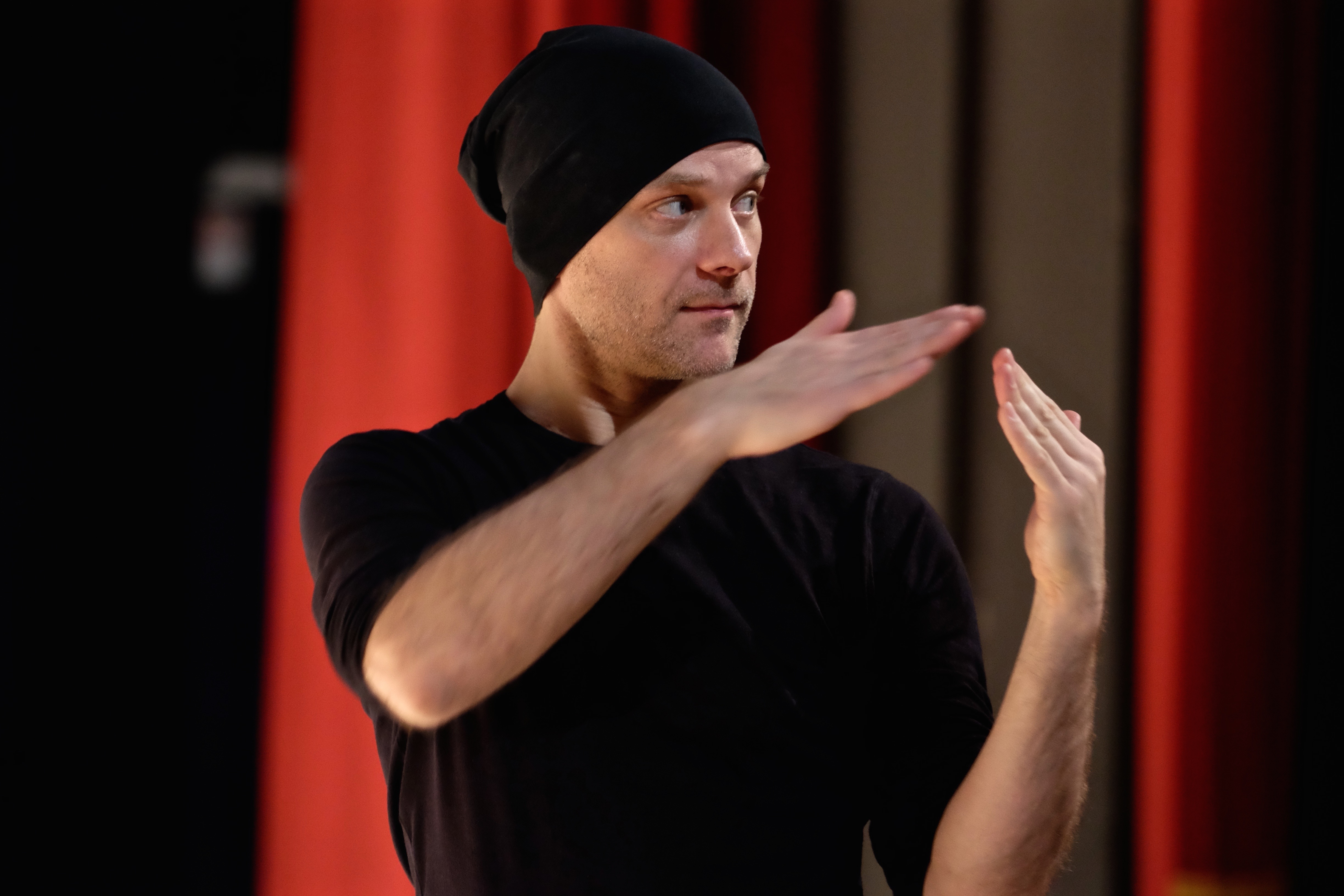
1. Renowned Estonian director Teet Kask © Teet Kask
2. ‘The Golden Temple’ was created in 2020. It is inspired by the novel of Yukio Mishima titled ‘The Temple of the Golden Pavilion’, based on the incident of the fire at Kinkaku-ji in Kyoto and follows the curious relationship between a young monk and the Golden Temple. What about the novel appealed to you and prompted you to create a work around it?
Teet: Reading Yukio Mishima’s novel, I noticed that the writer managed to capture between the lines something that touches spheres that can’t be described with words. Emotions were stirred and there was a strong urge to understand these sentiments. The entire *birdname team (‘The Golden Temple' 's creative team) felt the same and a decision was made to research this novel.
In the process, we understood that this was a very deep and timeless sensation and agreed that we would not interpret the poem on stage but instead, express how the novel made us feel and what kind of questions arose. The aim was to create an aesthetic experience through music, voice, dance, light and video installation, to touch sustainable qualities and to make space and time disappear. These are sensations that are common to humans, regardless of cultural environment, distances, languages and religions.
3. 'The Golden Temple’ combines various artistic disciplines – from movement to video art, electronic to classical music and singing. What was your experience of bringing various artforms together and synthesising the classical with the contemporary, to create this multidisciplinary theatre show?
Teet: I believe that dance, singing, music, light and video art are tools to communicate with the world and tell stories. These are tools that help humans to satisfy the urge as social creatures to communicate what we feel. Since we wanted to touch sustainable human qualities, classical music became a bridge between times, same with classical ballet technique and contemporary dance, they have melded into one form of expression. It was a very knowledge-rich and uplifting process.
 |  |
2. Rehearsal before the premiere of 'The Golden Temple' on the Estonian National Opera stage © Tina Bychkova | |
4. In 2020, ‘The Golden Temple’ first premiered in Yokohama, Japan and subsequently in Tallinn, Estonia in 2021. For the upcoming premiere in Singapore in October, you will be working with Korean American cello musician Robert Choi. Will this new collaboration add a different resonance and meaning to the way the work will be presented in Singapore? How will the upcoming performance differ from past iterations?
Teet: I believe that ‘The Golden Temple’ is in everyone, waiting to be discovered and understood. I am very excited about the opportunity to collaborate with a Korean American musician based in Singapore. We have had great online meetings with Robert Choi and can’t wait to meet him in person in Singapore during rehearsals. We are very curious and excited to witness the colors and values Robert will add to the performance. How will his ‘The Golden Temple’ sound and look? Every outstanding artist brings the original world with them. As an artist, they need challenges to improve. In ‘The Golden Temple’, Robert definitely has to step out of his comfort zone and will appear on stage out of the ordinary as a musician.
5. ‘The Golden Temple’ is a highly collaborative piece that brings together artists from different disciplines and nationalities. In your opinion, what are some key factors for international collaborations and exchanges? How has the exposure to a diversity of cultures and art forms influenced your process of creation?
Teet: I have worked with several dance companies as a dancer and a choreographer. All of them had a multinational environment. You are working towards one aim to deliver the best possible result to the audience. The preparation phase teaches us to solve differences and to discover sustainable qualities, something which is beyond nationalities and unites us as humans.
Dance has the ability to solve many issues in society or at least draw attention to these issues. It is a borderless communication tool regardless of language, cultural background, skin color and religious origin. We can also practice tolerance and empathy through non-verbal sharing, it gives comfort that we are not alone with our issues. Artists and art supporters should take more responsibility, interest and see art as an important tool to solve pressure points in society and to celebrate life.
I feel that it is very important to work across the arts and across nations, not only because it is a responsibility. Dance also gives us a special opportunity to contribute to the world and hope that this will at least make it a slightly better place.
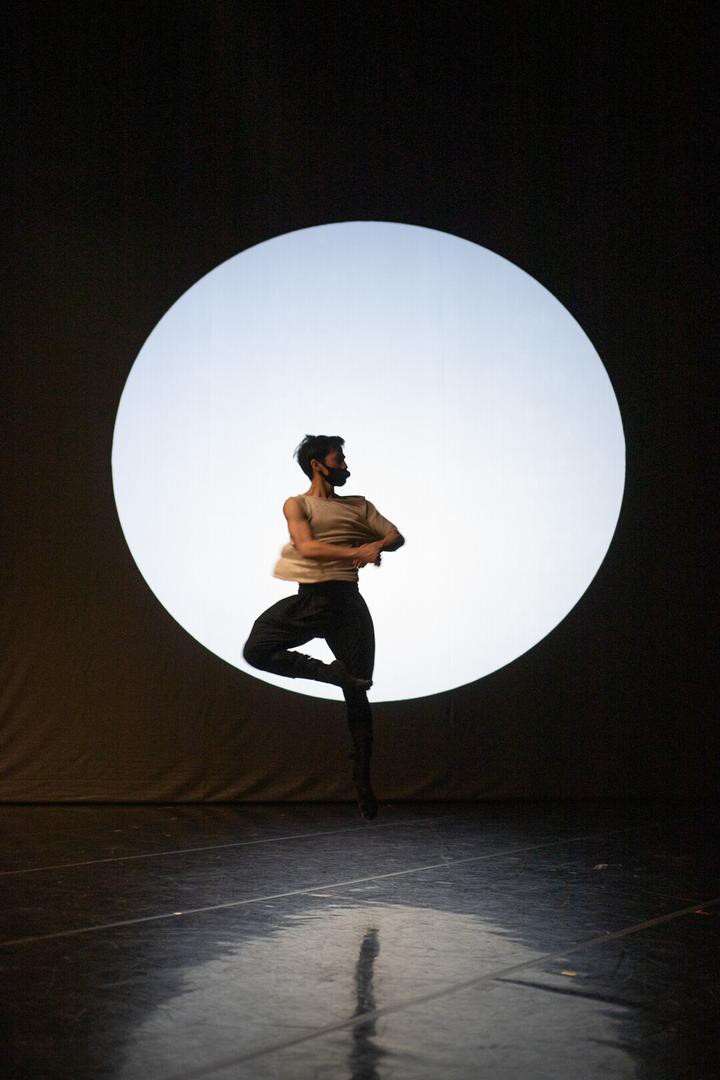 |  |
3. Performance shots from 'The Golden Temple' © Alina Birjuk | |
6. In your experience, how has the dance sector evolved in Estonia and the European region in the past 10 years? Has it impacted your practice or profession?
Teet: In general, it seems that the dance communities in Estonia and Europe take their artform very seriously. There is a much better focus on dance and its impact on humans. In Europe right now, there are very diverse trends in dance, and it is a growing field. The quality in general is very high. In Estonia, for example, the government opened a new music and ballet school MUBA (24,000 m2 with concert halls, stages, over 120 music and dance practice rooms, over 200 pianos, pilates center, etc.) This is a strong signal that dance and music are a very important part of our society. All these gestures are very supportive and encouraging.
7. What are some things that we can look forward to in the upcoming performance of ‘The Golden Temple’ in Singapore?
Teet: I would like to draw attention and to highlight in particular, the harmony between different forms of expression in this production. It is uncommon to see a cellist or singer, who is more than just a music interpreter on stage. To experience how with diverse backgrounds and expressions, dancers, musicians, digital artists, set designers and lighting designers blend into harmony and elevate sensations into a whole new level. And all of this happens non-verbally.
We hope that ‘The Golden Temple’ makes an impact and conveys the story such that the viewer forgets time and space. That it will take us on a ride where we can take the time to reflect on our own life journey and reconsider enduring values.
Catch this multidisciplinary theatre performance as part of the Asia-Europe Cultural Festival on Sunday, 22 October 2023, 8pm in Singapore:
BOOK NOW on Eventbrite
Supported by the Embassy of Estonia in Singapore and Ministry of Culture of Estonia, this event is part of Asia-Europe Cultural Festival 2023, CLICK HERE for the full programme.
About the Interviewee
Teet Kask, whose most recent productions include Louis XIV – The Sun King at Estonian National Ballet, Anna Karenina and Swan Lake at Balletto di Milano, is a choreographer and theatre director of international recognition. He has worked at Estonian National Opera, Royal Swedish Ballet, Norwegian National Opera and Ballet and Tbilisi State Opera and Ballet. Kask’s oeuvre consists of more than fifty performances.
Similar content
from - to
22 Oct 2023 - 22 Oct 2023
By Kerrine Goh
01 Nov 2023
from - to
22 Oct 2023 - 01 Nov 2023
By Michael Neo
21 Nov 2023
21 Jun 2021

